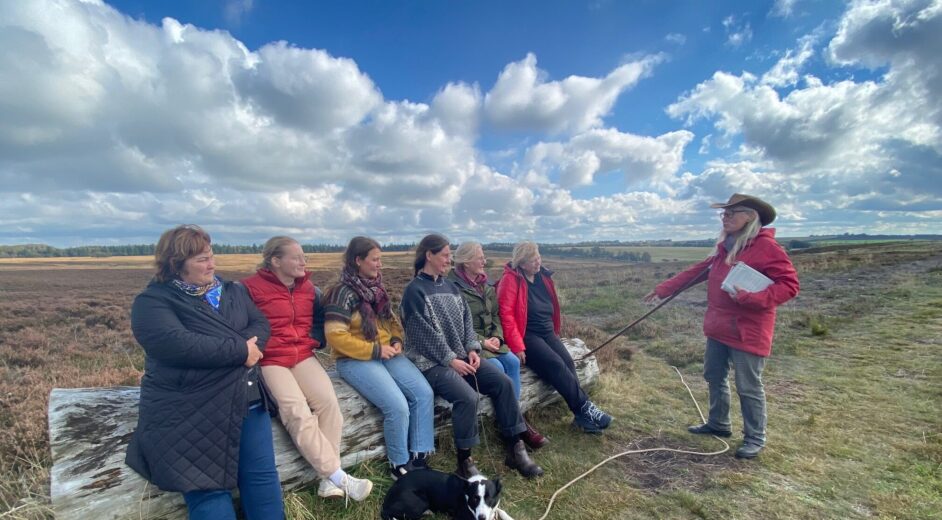Frontrunners in local food production create a bridge between culture and tradition
Food with a short journey from field to table is in demand by consumers in both the Nordics and the Baltics. This led food producers in Lithuania, Iceland, Norway and Denmark to come together in a Nordplus Adult project with a focus on learning from each other – both in relation to production and to sales.
By Joan Rask, journalist
Food that tastes good! Food that is healthy, and food that is produced sustainably with a short journey from field to table. That is the focal point for the participants in the Nordplus Adult project "Short Food Supply Schemes in the Nordics-Baltics", where smaller food producers exchange experiences and teach each other methods for production and sales.
Association Viva Sol in Lithuania is the coordinating institution. Initiator Lina Gumbrevicienė has worked as an administrator in the field of agriculture and food production for more than 20 years. Today she is a member and director at Viva Sol, an NGO membership organisation in Lithuania with a large active community around it.
”A short food supply chain is one of our key focus areas at Viva Sol. And our member farmers are all small-scale producers. The Ministry of Agriculture has made an effort to inspire farmers to start selling directly to consumers because it opens up new possibilities to earn more money,” Lina Gumbrevicienė says.
She explains that food grown or produced locally is also almost always a more sustainable choice than industrially produced goods. The reason is that transportation is minimal, the need for packaging is often reduced, and the shelf life is longer than if the products have a long transportation and packaging process behind them.
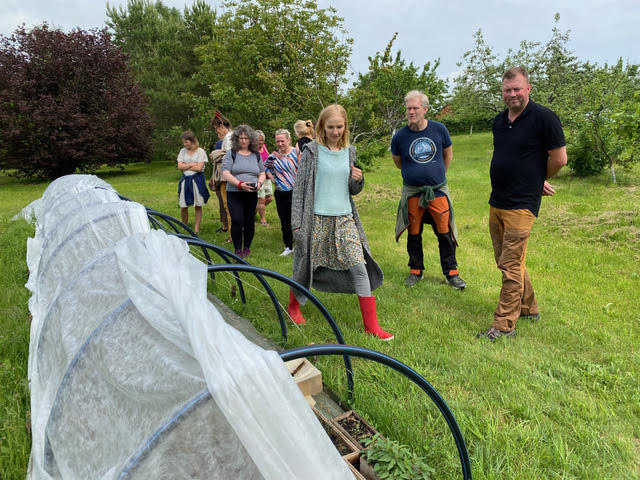
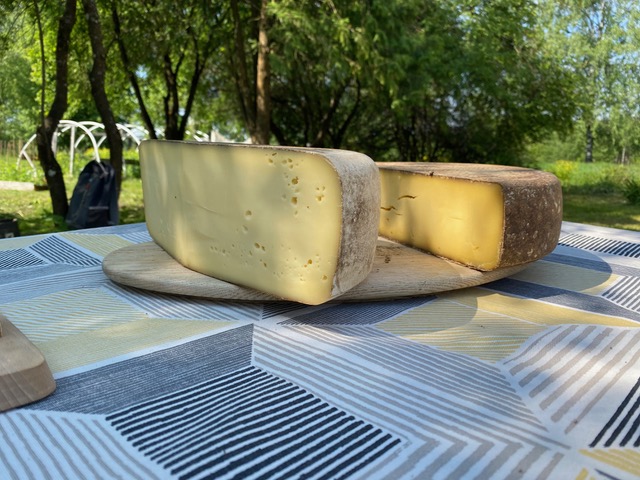
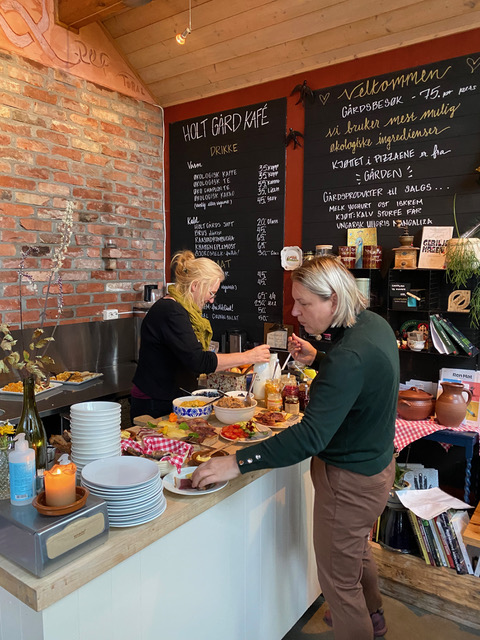
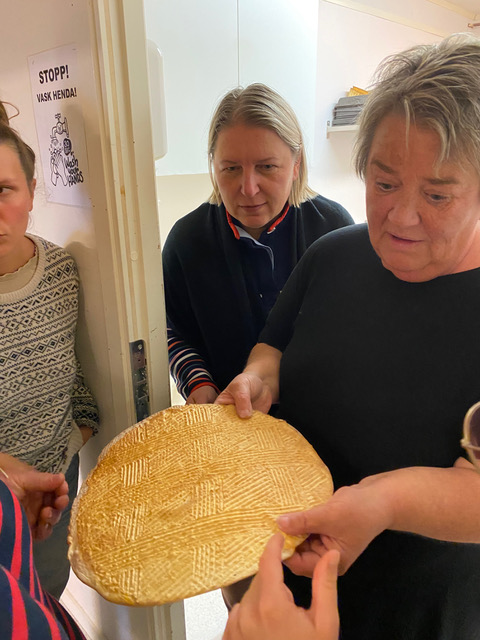
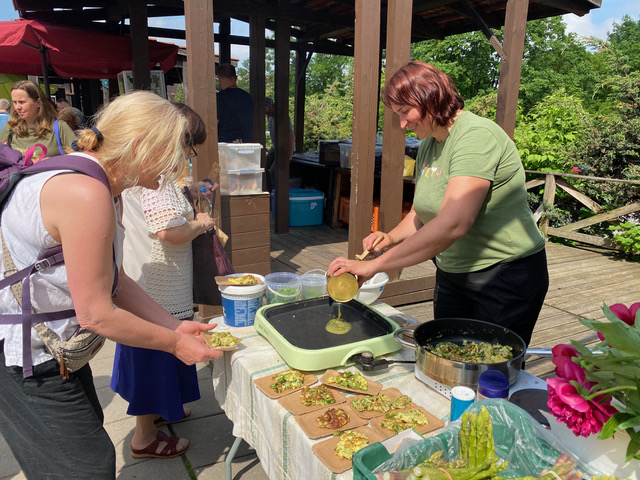
But how do you do that in practice? And which foods are suitable for it? And can the local food producer really create a product that consumers want to buy? These were some of the questions that the partners behind the Nordplus project wanted to investigate together.
It is not only about the production itself, but also about transport, because of course the producers often farm in remote regions far from any cities. In addition, there are the production and processing methods that are chosen, because if a cheese is to be produced locally, it requires different processing methods than those used in the large industrialised dairies.
"In Lithuania, for example, there is no school where you can learn to make cheese, so we had to find out what we could do! Fortunately, we have practitioners who are very skilled in cheese making, so we started to organise training courses. One of our members produced cheese very professionally and he was very good at teaching and sharing his knowledge with others. In fact, trainees came from all over Lithuania, and we even had trainees from Ukraine as well," she explains.
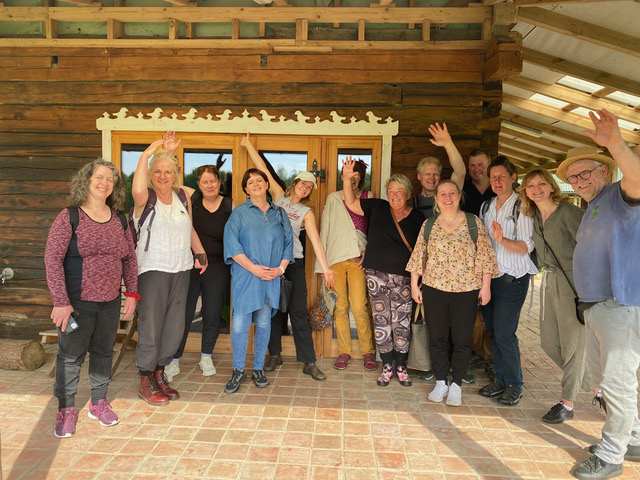
In addition to the workshop and training course, several educational videos were produced for YouTube, where the experienced producer showed and explained exactly how to do it when, as a producer, you only have ordinary everyday resources available. It doesn’t help to rush here. Cheese takes its time.
The pandemic gave rise to new ideas
It was the COVID-19 pandemic that forced many smaller Lithuanian farm owners to think differently because their sales channels suddenly disappeared – and with them the customers disappeared too. It led them to open their eyes to the fact that the neighbouring countries around them could perhaps contribute with new perspectives. This was one of the reasons why Viva Sol entered this Nordplus project. Here the Lithuanian participants met, amongst others, Berit Kiilerich, who is a shepherd and owner of Lystbækgaard farm, a former heath farm in West Jutland in Denmark that has been converted into a visitor centre for wool, sheep and old heath crafts. There is also a community and an association here that supports the work.
"Hardly a day goes by without me thinking about how valuable the Nordplus project was for us! And what great inspiration was shared amongst those of us who participated. There were super cool participants involved in the project," says Berit Kiilerich.
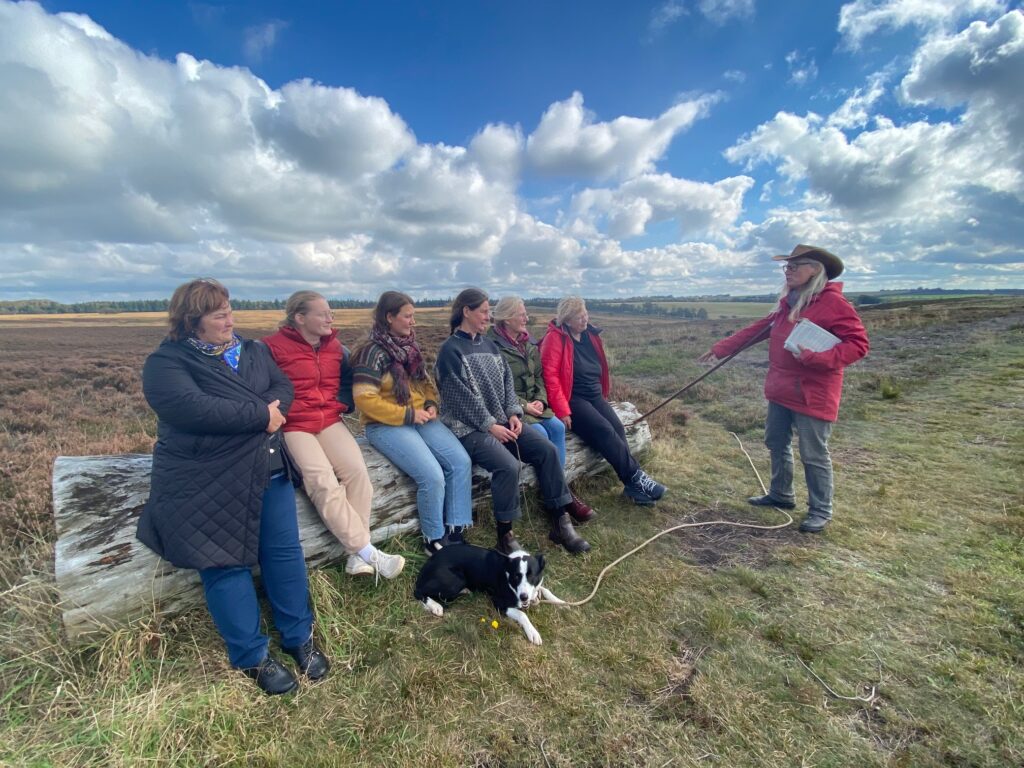
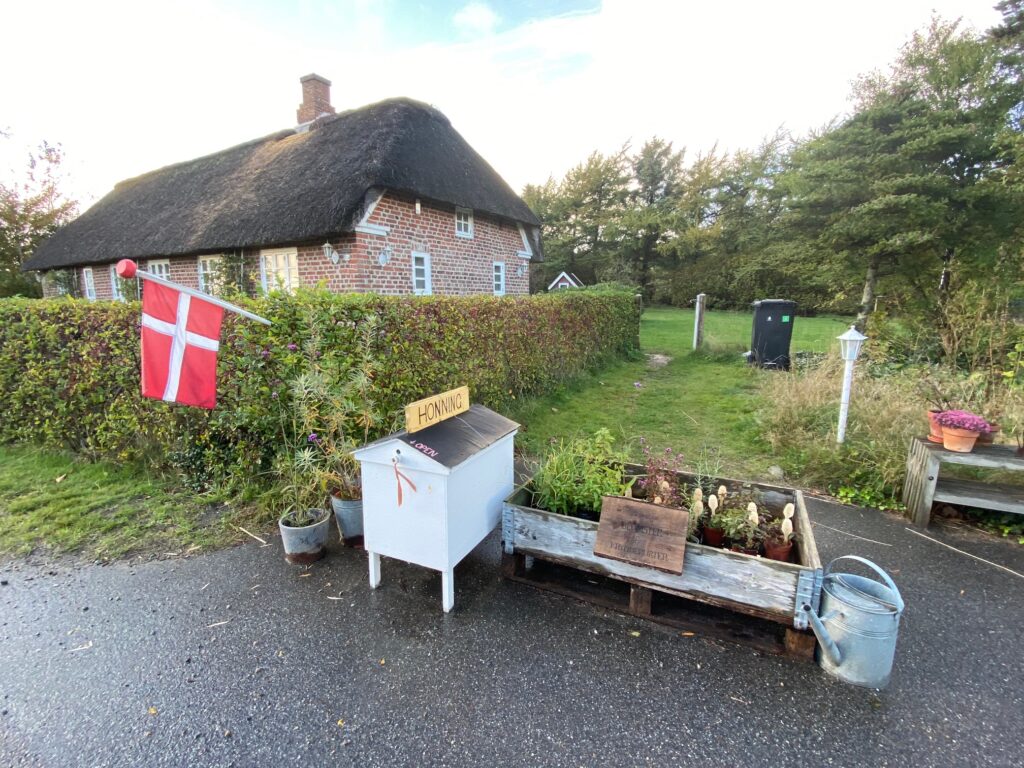
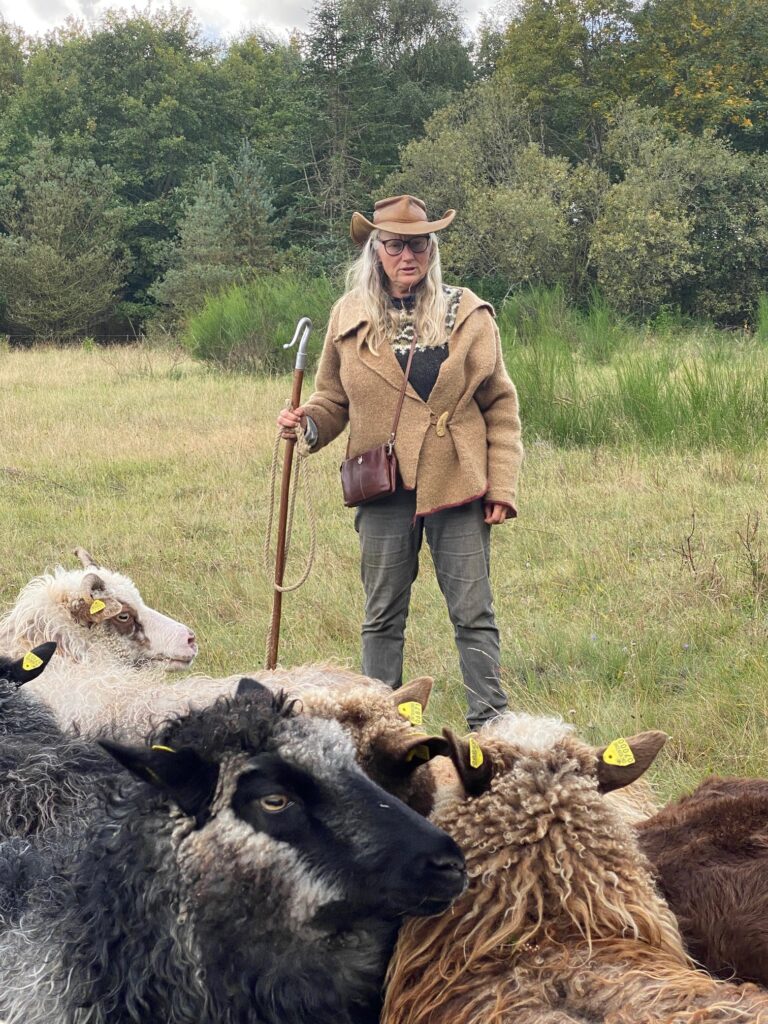
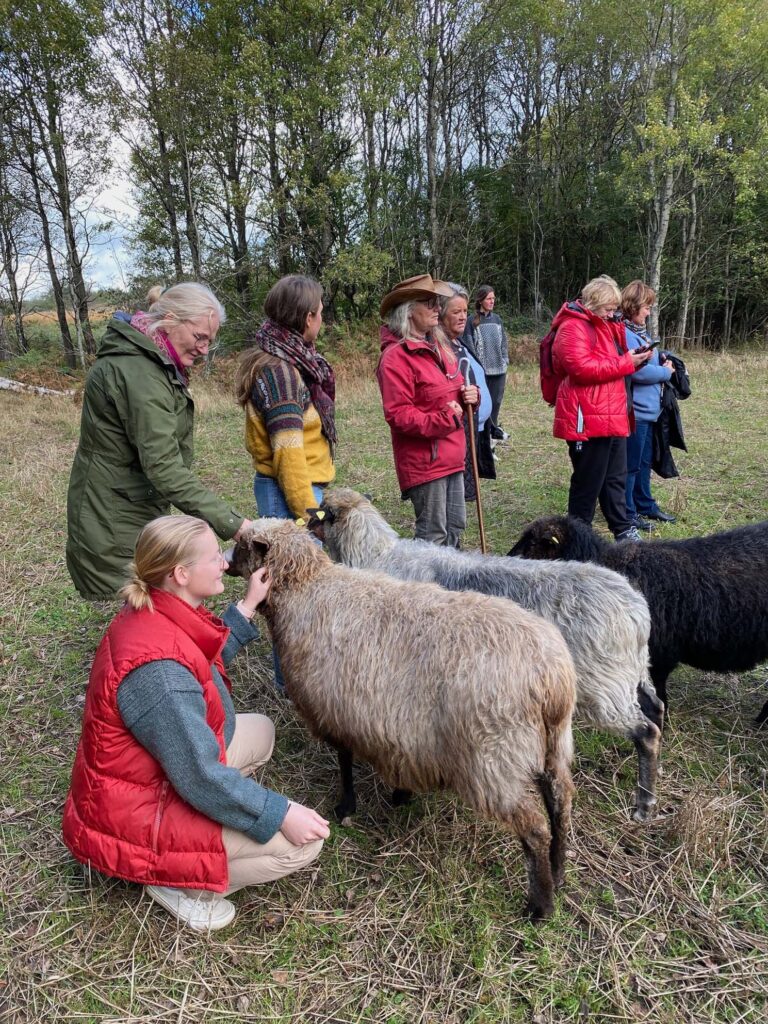
She is one of the very few Danes who is educated as a shepherd and who farms exclusively with sheep. She herself learned her trade in England, and today she herself educates young people.
"There are a lot of young people who are attracted to this line of work. It's almost crazy how it has exploded! I get more than one enquiry a week. They write and call, and they all want to come and work for free. They want to learn, and they want to go out into the fields with our shepherd," says Berit Kiilerich.
She is a little surprised at how great the interest is and guesses that it is also about the possibility of connecting with the animals and to nature in a way that humans have done for centuries. Lystbækgaard lies on the Jutland heath, where sheep farming has been carried out for hundreds of years and where the landscape is characterised by flocks of sheep that grazed the heath in earlier times. Today, a sheep farm is a distinctive feature in Denmark.
"Out in the world the work we do here on the farm is recognised, but in a Danish context not many people know about us," says the Danish shepherd.
Perhaps that is precisely why the Nordplus project became so significant.
"We have taken part in other international projects with several European participants. These quickly turn into projects where men-and-machines become the dominant thing. That is why we as Nordic participants decided to apply for a project at Nordplus. We took part in a contact seminar 10 years ago and now this is our second Nordplus project," explains Berit Kiilerich Mouritsen.
Where the other partners are from, sheep farming is more widespread.
"It was very inspiring to be in Lithuania. The old craft traditions are used much more in everyday life and we saw how they could shape tools from wood and how they cut grass with scythes. It's much faster than with a brushcutter once you've really learned how to do it!" she says.
Products for locals - a scarce commodity
Together with the Lithuanian farmers, Lina Gumbrevicienė participated in visits to the partners in Denmark, Norway and Iceland. Here she was both coordinator, co-organiser and often also an interpreter. In the conversations with the farmers, they discovered a particular issue together.
"Even though the Nordic countries are very, how do you say it - prosperous countries, we understood that the farmers are struggling everywhere, in the Baltics and in the Nordics. Of course, the farmers' situation is different in each country, but they all have to work a lot, they need to find customers to sell to and they need to have sufficient incomes on a daily basis all year round," says Lina Gumbrevicienė.
It was not the only common reflection that the participants encountered. Everyone – across the nationalities - could nod in recognition of a particular buying pattern.
”It is very strange but locals do not buy local! Nobody knew why! All farmers from different countries agreed on that. For example, in Norway there were a lot of different shops with a lot of local products but they looked very touristy, as if they were made just for people who come to a rural area for the weekend. The products did not look like they were produced for daily consumption,” she explains.
Another thing also made a big impression on the Lithuanian farmers after the visits to Iceland, Norway and Denmark.
Roadside stalls alongside trust and security
"One farmer, Rasa Griežėshe is a cheese maker and she also produces a lot of vegetables and other dairy products that she sells at the local markets. She said; It is very interesting for me to see, that the farms are open, and on almost every farm you can find a small marketplace and that many farms had open doors so that customers at road stalls and at farm shops could see part of the production,” Lina Griežė recounts.
The phenomenon of small road stalls is well known in all the Scandinavian countries. The producer displays goods and trusts that the customers will pay. The flavours and products are often of high quality.
Good taste trumps everything
Both Berit Kiilerich Mouritsen and Lina Gumbrevicienė had taste experiences that they still dream about. They were impressed by the high quality and diversity to be found from farm to farm, and how in Iceland and Norway they had refined the taste experience.
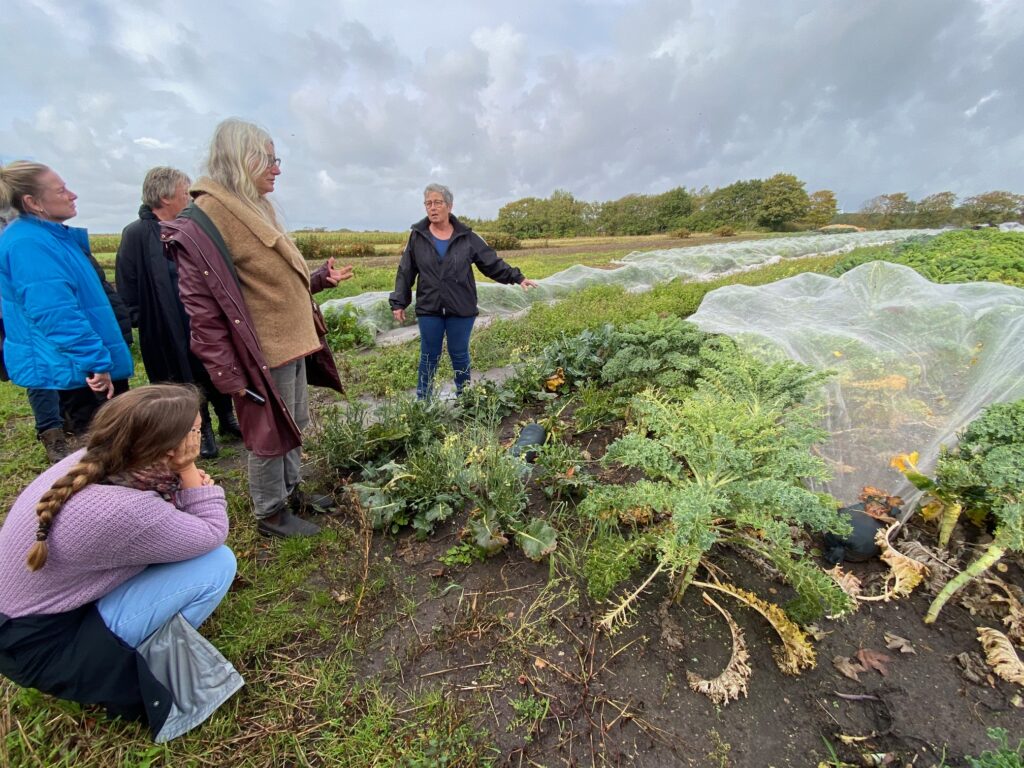
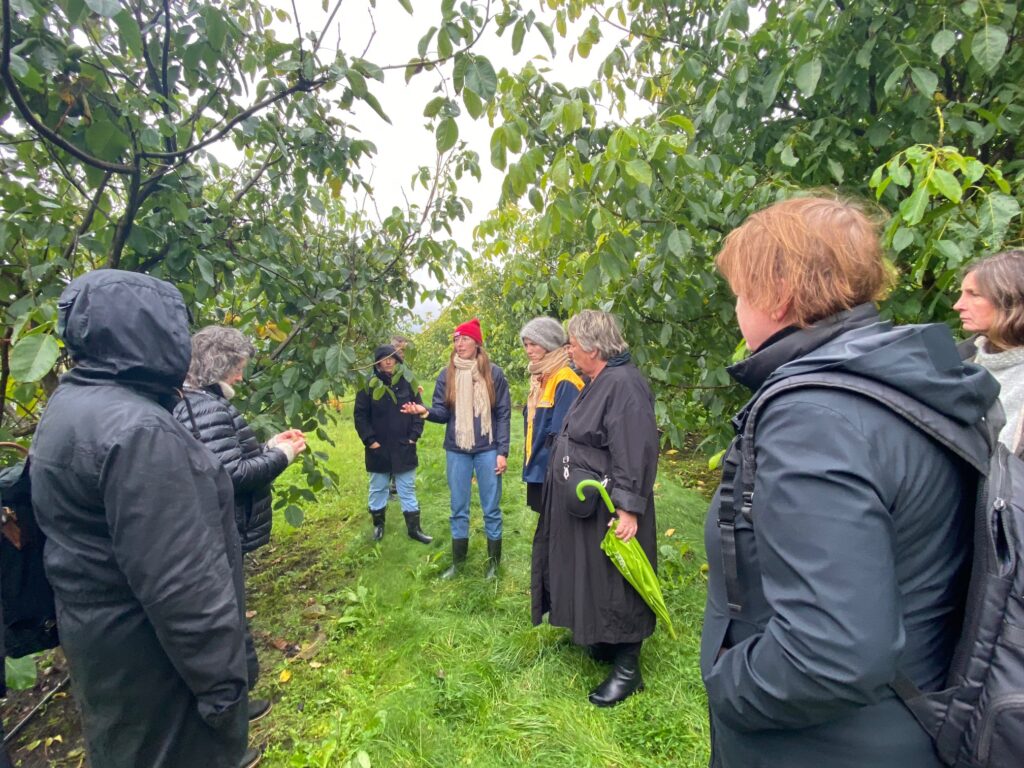
In Norway, they met the couple Karin Axelsen and Christoffer Hønsen, who run the smallholding "Delbekk husmannsplass" together, based in Fenstad in Akershus. They bought the farm in 2018 with a dilapidated house that had been uninhabited for 50 years, and with six hectares of land leased out for cereal production. Today there are 2,000 apple trees in even rows, 1,500 currant and blackcurrant bushes, plus a little rhubarb and pear trees, and before the end of the year they expect to plant another 800 apple trees.
"Starting next year, the trees will be planted according to old-fashioned methods, so that they will have up to 9-10 meters around them, and they won’t be in rows! It looks as if you can reduce the use of pesticides in this way - because nature itself manages to keep fungi, grass and weeds at bay. We use as few pesticides as possible, but we still can’t completely do without it,” says Christoffer Høsen.
The couple joined the Nordplus project because they hoped to gain inspiration and learn about other forms of production.
"All our expectations were met, and it was an experience to see how they farm in a very down-to-earth way in Lithuania. We were also fascinated that mutton in Iceland was sold in a government funded shop shop on wheels! We met so many dedicated and lovely people everywhere," he says.
Karin Axelsen adds:
"I am proud to be part of the community of smallholders and that we produce sustainably. It meant a lot to meet like-minded people and to be together both professionally and socially," she says.
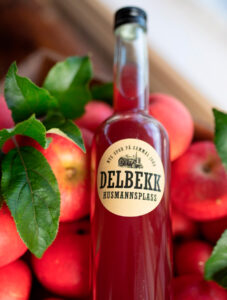
The couple are convinced that they want to continue working with more sustainable forms of production, and they remain active in the network that was created. Berit Kiilerich Mouritsen feels the same.
"It created an enormous sense of belonging for us as farmers that we could talk together and swap experiences and ideas about processing, about how meat was smoked, which spices were used, etc. In Iceland, they showed us how they worked and they explained to us how everything from a sheep was used – ears and tongue too! During the visits, I experienced a deep sense of the generations and of skills being passed down. I know that Danish emigrants from West Jutland went to Iceland, so maybe now it is us Danes who need to learn from the Icelanders, so we can rediscover some of the skills we have lost," says Berit Kiilerich Mouritsen.
She saw it as an advantage that it was described as a Nordic and Baltic project, because the examples, tips and recommendations were much easier to share than with southern European participants who produce in a completely different climate and for a different cultural environment.
"We achieved the goals! It was a fantastic project and today we still have the community. I think about it every day. Everyone put their hearts into it, and we visited places and met people that we would never have done if this Nordplus project had not been established," says Berit Kiilerich Mouritsen.
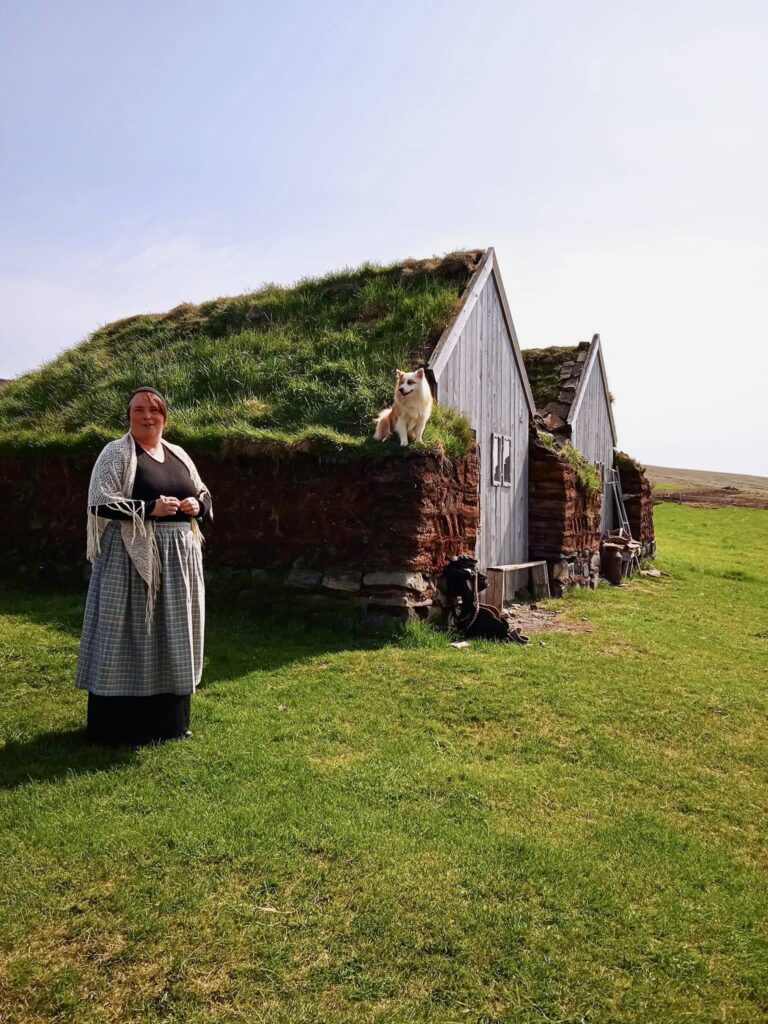
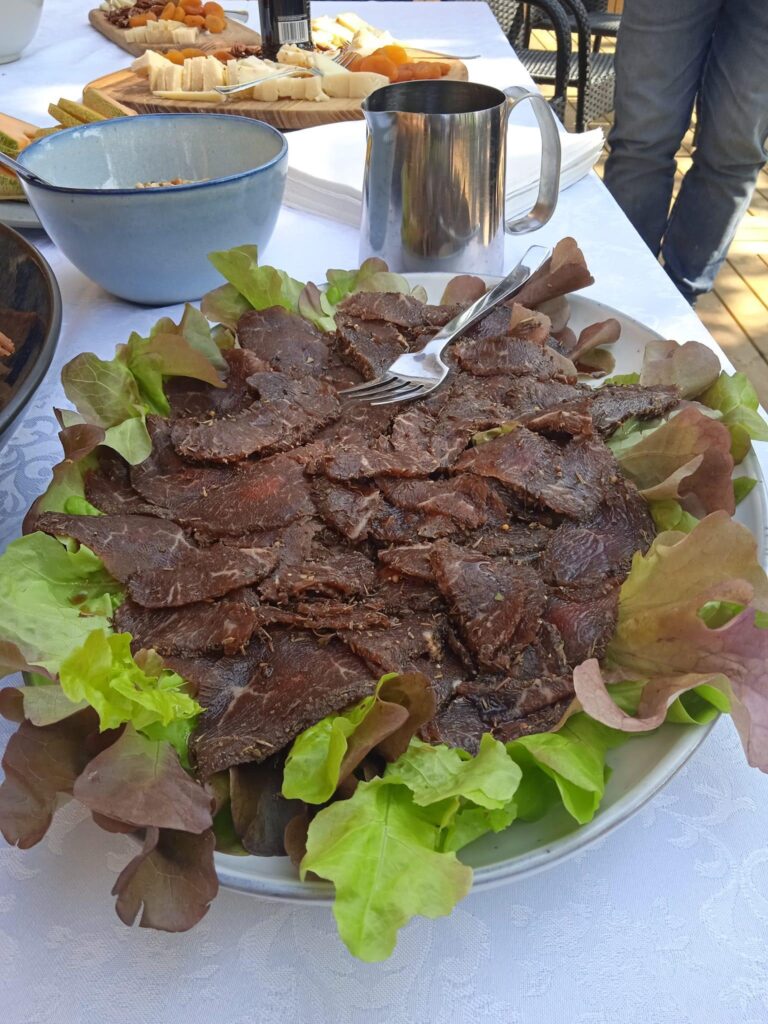
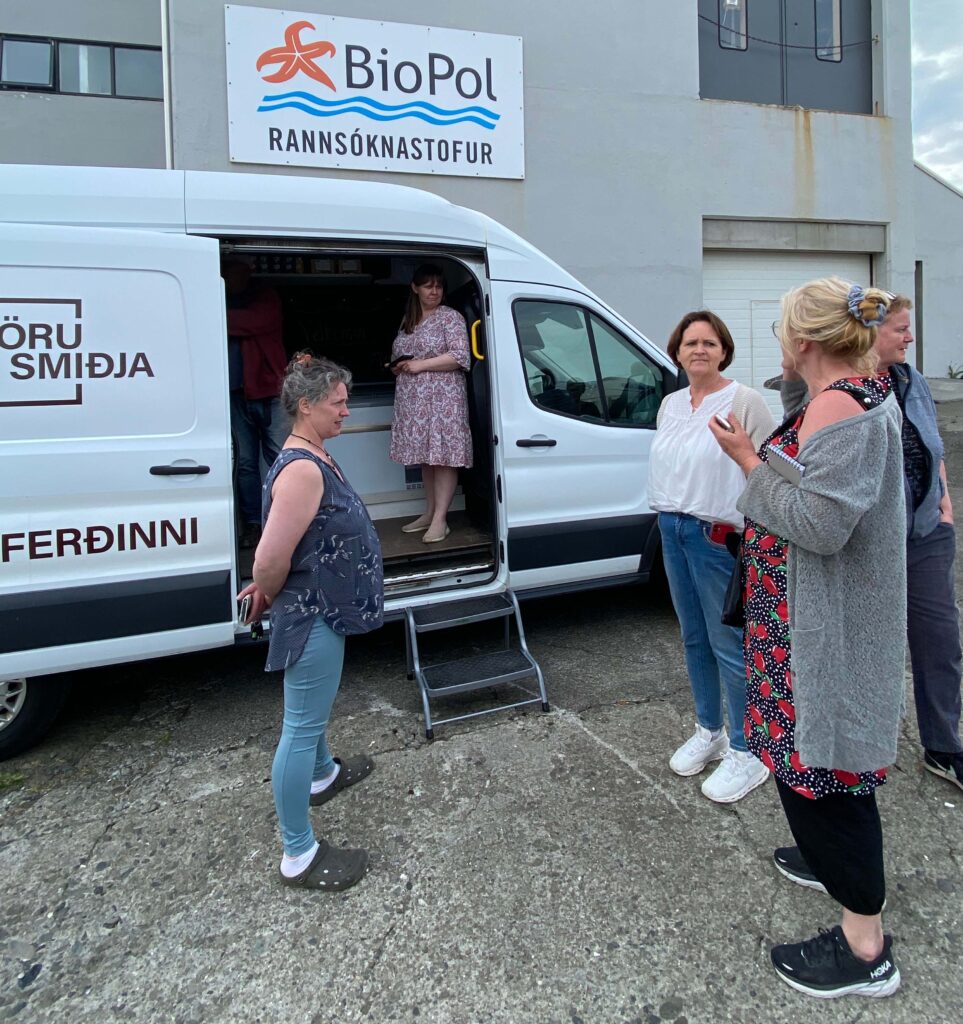
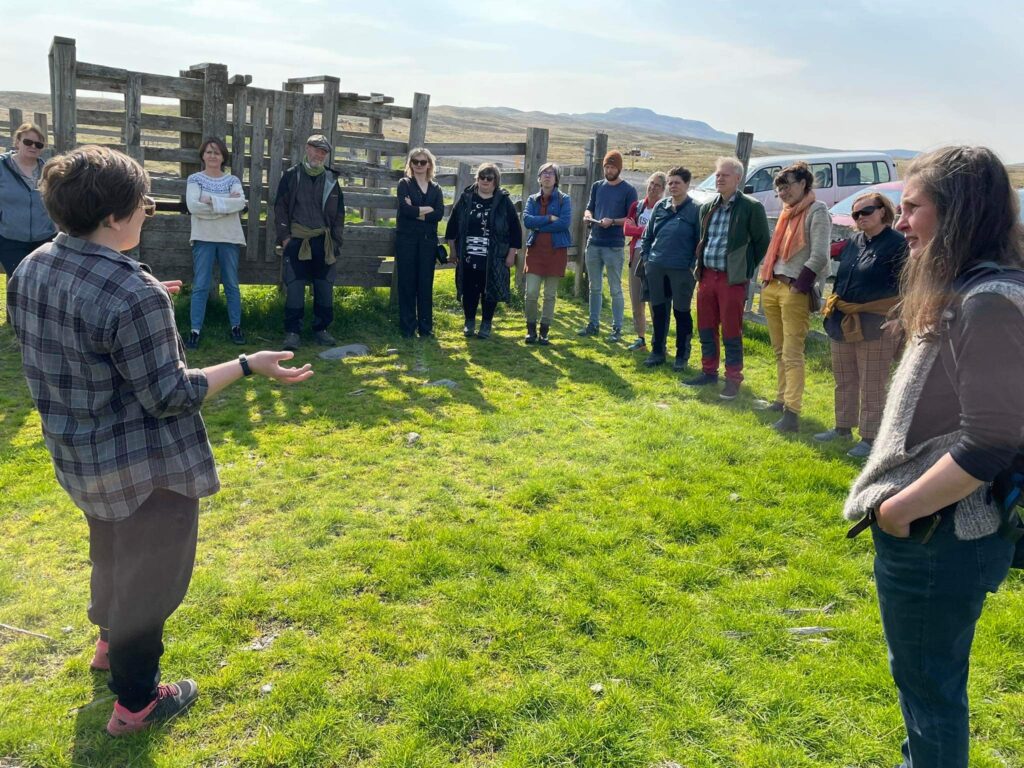
More information:
- Viva Sol, Lithuania
- Lystbækgaard, Denmark
- Delbekk husmannsplass, Norge
Facts:
Nordplus project "Short Food Supply Schemes in the Nordics-Baltics" is financed via the program Nordplus VOKSEN. It is a thematic learning network between NGOs, associations and smaller local producers. Four farmers from each country participated and they visited Norway, Iceland, Lithuania and Denmark. Each visit lasted five days.
Curious about a thematic network?
A Nordplus project can be a one-off collaboration between institutions that typically runs for 1-2 years, but it can also be a long-term kind of collaboration that is set up as a network.
Interested in a green and sustainable world?
- Join our Green Seminar: Nordplus for a greener future!
Read more and registration for the seminar.
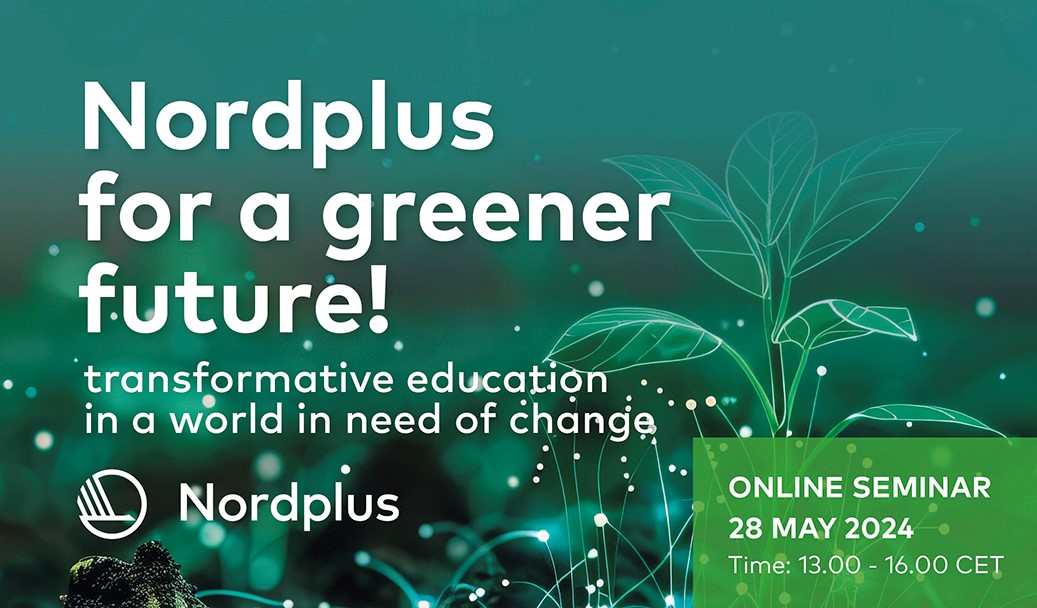
Read the article in Nordic (Danish)
Coordination Institution
- Association Viva Sol, Lithuania
Partner Institutions
- Lystbækforeningen, Denmark
- Hvanneyri University of Agriculture, Iceland
- Hanen Viken, NGO, Norway
Program
- Nordplus ADULT
